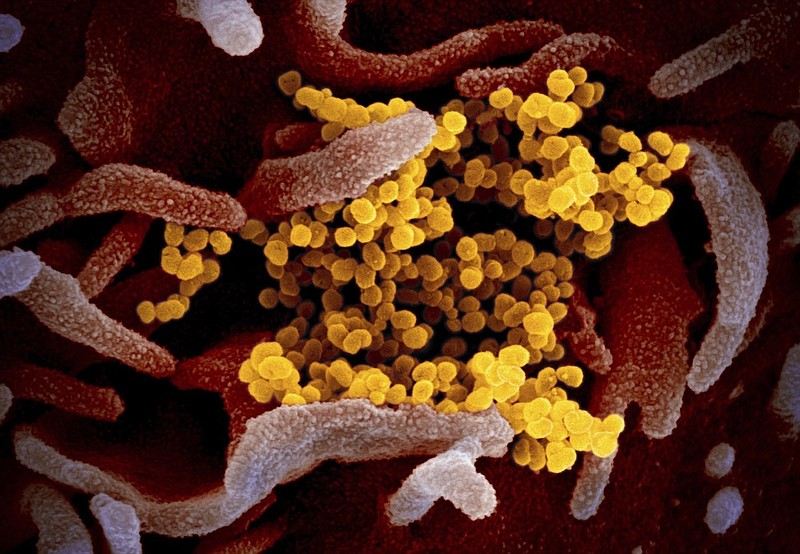Life as most of us know it has changed. And in many ways, it likely will never go back.
Many will find that work at home is neither as hard nor as easy as they once dreamed. Employers will look around and ask themselves why they're paying overhead for office space when the work gets done well enough without all those rows of cubicles. Home schooling may catch on as more people are laid-off and families adjust to closed schools and/or a single income.
But that's just the big stuff.
Few deals and fewer introductions will be sealed with handshakes. Forget the grip-and-grin photos of the business world and the hugs-and-grins snaps for society magazines. The new biz norm is bump and worry. The new society photo might be a wide shot - preferably from a drone overhead.
Until this week, most of us had never used the terms telecommuting and social distancing.
And now if we want to eat out, we'll have to pick up our food and find a remote picnic table.
Chattanooga Mayor Andy Berke on Thursday ordered all restaurants and bars in the city to end dine-in services to protect against the spread of coronavirus. He also ordered all gyms to close to promote social distancing. Already, public access and activities at city recreation centers, library branches and Eastgate Senior Center remain suspended.
While it all may seem rather draconian, it's not unreasonable. Hamilton County's first case of COVID-19, confirmed Friday, was an Episcopal rector who had contact with hundreds of people and administered communions for two weeks before he realized in early March that he might have the disease. Now two more cases have been confirmed, including "a community member" of the UTC campus. Those are two very high-profile, high-traffic spots from which the highly contagious COVID-19 can spread.
Berke, in a teleconference from his home, made it clear that his order was "the last thing" he wanted to do to Chattanooga's business community, but he has to look out for the interests of public health - especially in light of a dearth of similar state and federal preventions, as well as the county's unenforceable recommendation Wednesday for restaurants to switch to delivery, drive-through or carry-out food service.
Life as we know it. Today. And we can count on it being different again tomorrow.
"Every piece of available data we have says that social distancing is the only way to slow the spread [of coronavirus]," Berke said in a formal statement. "We're making a lot of painful choices to keep Chattanoogans healthy and make sure that our local hospital systems do not become completely overwhelmed."
If you're wondering whether this puts new meaning to all of Chattanooga's "best city" accolades of recent years, you bet it does. But that's exactly why all of this is necessary. And both Chattanooga's and Tennessee's government leaders are looking for ways to financially support these businesses through a period that means nothing but mounting monetary loss. If we can prevent the spread of this virus now, we may never have to see our city put on the kind of lockdowns we're seeing in other regions of the country.
Gov. Bill Lee announced Wednesday that he has submitted a request to the U.S. Small Business Administration for economic injury disaster loan assistance to help make up for any small businesses negatively impacted by COVID-19 and its associated issues.
Earlier this week Lee pushed back on a report by WalletHub that said Tennessee ranks as the ninth least aggressive state in the nation in fighting the virus. WalletHub's ranking noted that the Volunteer State is in the cellar for its low number of public health labs, as well as its almost non-existent amount of coronavirus testing, public health spending per capita and total public health emergency preparedness funding.
Without question, the virus has scrambled Gov. Lee's and the GOP-led General Assembly's plans for the state's $40.9 billion anticipated budget. At this last minute, state lawmakers and administrators are reassigning funds to address unemployment, meals and health care.
Historians and sociologists, too, are saying the coronavirus is changing short- and long-term cultural norms and worldviews.
They point to the Spanish flu of a century ago, which put a new pattern into the fabric of American society. The flu's disproportionate hit to men, combined with World War I, created labor shortages that opened doors for women in the workforce. In turn, those opened doors ultimately helped usher in voting rights.
"This is a real tipping point - that we look at a pandemic as what we can do to help others," Florida Institute of Technology's historian Gordon Patterson told Florida Today. "This is something that can make our social fabric stronger. Good can come from our being adults about this."
We can think of one good thing already: Political campaign rally stumping has ceased, and politicians are having to debate together - and make some sense - rather than posturing on stage.
The times, they are a-changing.
